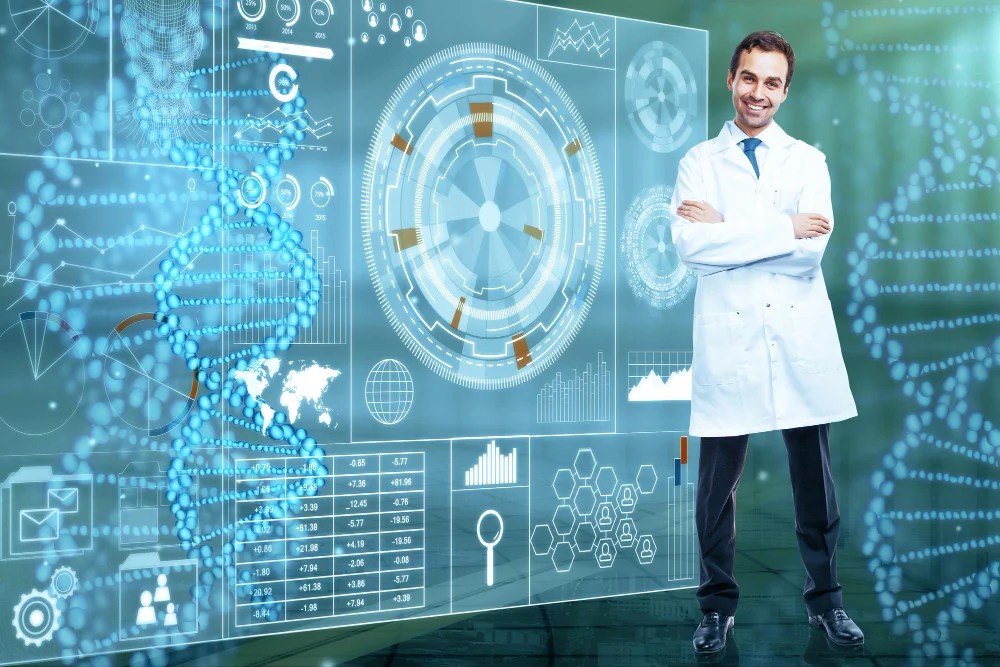Top 10 Engineering Applications of Artificial Intelligence
Introduction
While Artificial Intelligence has changed the set of industries, its implementation in engineering applications has truly transformed AI’s efficiencies, accuracies and innovations. Here in lies the leading ten engineering applications of artificial intelligence.
1. Predictive maintenance
This would be one of the big ones for artificial intelligence in practically all engineering applications. Analytical data combines with machine learning algorithms to make it possible for engineers to predict when machinery and equipment need maintenance. This reduces downtime, lowers costs, and extends the life of the equipment. AI collects real-time feedback from sensors and analyzes them to prevent breakdowns before they occur, ensuring smooth running in industries like manufacturing and energy.
2. Robotics
AI has gone so far in giving robotics intelligence that is wider and more independent. AI robots have been built to do even complex tasks like assembly and welding in manufacturing. The robots perform this work to the exact measurements assigned. The robots use real-time information to avoid obstacles and plan paths effectively. This helps them improve productivity and manage time better in factories and warehouses. In hazardous environments like mining or space exploration, AI-driven robots assist where it is too risky for humans.
3. Quality Control and Inspection
Product quality is a very important line in engineering. AI vision systems have generally been proven to make big contributions to quality control and inspection of products in many industries. In comparison to humans, the systems can detect any anomaly or defects with high accuracy. For instance, in the automobile field, AI systems check components for the slightest defect; this assures that the components are made of high-quality materials to put a vehicle together.
4. Structural Health Monitoring programs
Of equal importance as an engineering application, AI is structural health monitoring. In this case, sensors placed on the structure of concern—for example, bridges, buildings, and dams—will provide the data to an AI system monitoring the respective structural health by early detection of any potential problem. Using AI, one can predict structural failure to avoid catastrophe and maintain those areas. This is also quite welcome in applications by civil engineers whose concerns are primarily directed at maintaining the integrity of the structures.

5. Energy Management
It makes management modern with the use of resources and increases the efficiency of energy use. AI controls energy distribution based on smart grids and optimizes demand and supply. AI is also used to forecast energy generation from renewable sources such as wind and solar to integrate it better into the grid. In this regard, another practical application is submetering-based artificial intelligence-driven systems that control HVAC to minimize energy consumption for the benefit of environmental comfort.
6. Automotive Engineering
An example of this would be self-driving cars, where AI algorithms process data from cameras, radar, and other sensors to make decisions regarding navigation and driving. It has also been improving the safety of cars by implementing advanced functionalities in ADAS, which could include emergency braking, lane-keeping assistance, and adaptive cruise control. These AI-based systems will be able to analyze real-time data for split-second decisions, bringing about road safety improvements and the overall driving experience.

7. Medical Engineering
AI will play a significant role in developing better health equipment, like improved diagnostic and treatment tools. Artificial intelligence algorithms help doctors look at X-ray and MRI images to find diseases and problems accurately, such as detecting cancer early. AI will also help create technologies that can adapt to changes in patients’ conditions, making their lives better.
8. Automated Construction
It will also automate construction activities, including safety, for efficiency. This automatically saves part of the on-site human workforce dealing with construction activities. Drones and robots powered by AI can now do activities like site surveying, material handling, or even bricklaying. Technologies like these help minimize human fatigue while minimizing human errors. The use of AI also makes project management easier through schedule optimization, prediction of possible delays, and resourceful management for both time and money in the timely and cost-effective completion of projects.
9. Aerospace Engineering
AI applications in aerospace engineering are rapidly advancing. AI systems are thus applied in designing and simulating aircraft for improved performances and levels of safety. At the operational level, AI is helpful in monitoring systems, predictive maintenance, and providing optimal flight paths to save fuel during flights. Autonomous AI-driven systems are also to be developed for UAVs to enable their complex missions in defense, surveillance, and environmental monitoring.
10. Environmental Engineering
Using its intelligent algorithms, AI now plays a vital role in addressing environmental issues by analyzing vast volumes of data within the purview of environmental engineering to predict natural calamities and develop sustainable practices that help maintain pollution levels. For instance, pollution estimation through AI models can use air and water quality, allowing the authorities to take advanced measures for pollution reduction. Moreover, AI-driven systems drive waste management toward recycling processes that ensure minimum environmental impact.
Conclusion
Leveraging artificial intelligence applications in engineering will infuse industries with superior efficiency, precision, and innovation. AI will revolutionize the future of engineering, which ranges from predictive maintenance to robots, healthcare, and environmental engineering. In the light of emerging technological progression in artificial intelligence, inputs into engineering will bring forth even more groundbreaking applications and solutions.



